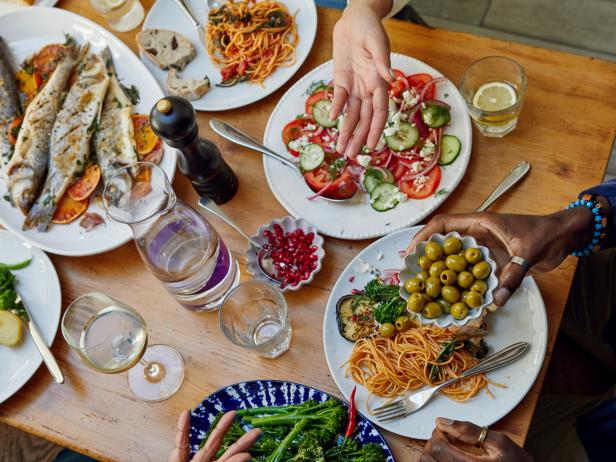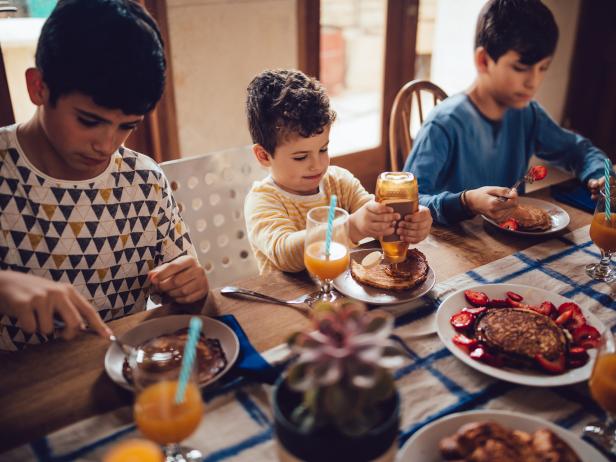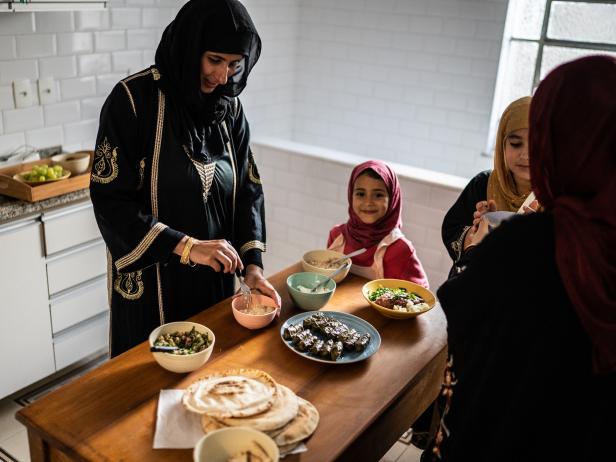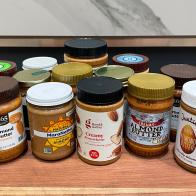New Research Says the ‘Secret’ to the Mediterranean Diet Is Good Company
But what can you do if fitting in family meals is difficult, or you live alone?

Compassionate Eye Foundation/Natasha Alipour Faridani/Getty Images
In a compelling new paper, Italian researchers describe how the ‘secret’ to the positive health effects of the Mediterranean Diet may be something beyond the food. Sure, the olive oil, legumes, fruits, vegetables, whole grains, seafood and yogurt are still important. But the transformative potential of the Mediterranean lifestyle may also be found in the daily act of eating together with others – and the joy of cooking together.
In other words, it’s not what you eat, it’s who you eat it with.
The Secret ‘Ingredient’ in The Mediterranean Diet
Eating is not just about meeting nutritional needs; it’s also about the social act of sharing meals, which is part of cultures around the world. In the new paper, researchers established that people who have strong social connections tend to live longer and have lower risk of heart disease, stroke and diabetes.
The journal article documented dozens of research studies that found positive health benefits from conviviality – or the act of enjoying the food and company at a meal, specifically when the interaction is “friendly and lively.”
The health benefits of conviviality and pleasurable mealtimes include better mental health, reduced loneliness, decreased depression, decreased risk of heart disease, reduced stress and lower cortisol levels, improved mood and increased feelings of happiness that are likely a result of an actual physiological response: the release of endorphin hormones.
In another newly published paper, examining shared meals in Germany, Italy and the U.S., researchers saw that family meals not only contributed to more feelings of connectedness, but also promoted emotional well-being. “It is important to know the benefits of shared meals beyond avoiding negative health outcomes and fewer depressive symptoms, this research shows that shared family meals promote happiness and positive emotions,” comments William Doherty, Professor, University of Minnesota.
In the study, most adults engaged in six or more family or shared meals per week, with more meals on weekends. The study authors pointed out that in all three countries, as the number of family or shared meals increased per week, the levels of reported happiness also increased for other household members.
But what can you do if you don’t have time for family meals, or you live alone?
Eat In the Car with Intention
You can still foster family dinner conversations, even if you’re headed to evening activities or sports practices several nights per week.
Pack dinner to eat in the car or grab some healthier drive-thru meals. Turn on soothing dinner music, and try to encourage discussion of daily activities or about what’s in your dinner bento boxes. The key is to eat at a leisurely pace and interact. If you have pre-teens or teens as your meal companions, some of the best communication can occur just by being in proximity to one another – and being open to dinner conversations.
And if this level of ‘intentionality’ sounds unrealistic in your car, Sally Kuzemchak, MS, RD, dietitian at RealMomNutrition.com has a smart strategy. “You can always come together after the dust settles for a pre-bedtime snack or dessert so that you still get that ‘family dinner’ feeling, which some kids (and parents) can feel like they miss when eating away from home. Then, an exhausting day can end up feeling a little like a special occasion.”

wundervisuals/Getty Images
Schedule in Family Meals
Orchestra rehearsals are scheduled on the calendar; family meals can be too. To add extra incentive, serve favorite meals on a rotation. If your family knows that the weekly menu will usually include Taco Tuesdays or Pizza Fridays, they may be tempted to stay home, or make their schedule align with Saturday morning pancakes.
Engage Toddlers for ‘Good’ Conversation
Parents of young children often end up eating several meals a week alone with a baby or toddler. These meals can still be convivial – or pleasurable. Really! While you may want to take this time when a child is occupied (and strapped into a high chair) to get tasks done, instead try to take 10 to 15 minutes to sit down and eat with your child. Researchers have found that an added bonus of very simple meal conversation is that children may have less-picky eating habits: talking about if vegetables are crunchy, soft, squishy helps children learn to enjoy them.
Start a Work Potluck
The winter holidays are a logical time to start a potluck lunch at work – because people may already be in the ‘holiday party’ spirit. But any time of year is a good time to begin increasing employee engagement for happier, healthier employees.
Meals do not have to be fancy. One bookstore in Seattle just asked employees to bring in leftovers (prepped and stored using food-safe practices) to share the next day for lunch.
It’s up to you how you organize the potluck. “You can leave entirely it up to the attendees, which is exciting — until you end up with twelve versions of the same side dish! While that might be a memorably carb-heavy event, you can also assign specific dishes to bring,” says Mario Casaus Director at Apple Spice Catering, who has more pro tips on perfect company potlucks.

SolStock/Getty Images
Meet up With Elderly Friends at Common Tables
Do you know a family friend or relative who lives in a retirement home? Go visit them and share a meal. You’ll likely make new friends.
Volunteer for Meals on Wheels. While some volunteers deliver meals while having friendly conversations, other volunteers help out at communal dining locations. “We see that participants have benefits in mental and social health – not to mention reduced risk of chronic conditions and better nutrition,” says Jenny Young, Vice President of Communications at Meals on Wheels America.
Use Technology
Communal dining is a cornerstone of the Mediterranean diet, but innovative technologies enable us to connect with others, fostering community even when we’re apart, says Dr. Elisabetta Bernardi, Professor University of Bari and author of the aforementioned paper. “Whether through virtual cooking sessions, food blogging, live-streamed communal meals, or culinary exchanges on social media platforms, these new forms of conviviality contribute to our well-being and highlight the various ways we can enjoy shared meals.”
One key to having good conversation over a video call is for both of you to be enjoying a meal together; talk about what you’re eating to get the lively dialogue going.

FG Trade/Getty Images
Enjoy the Cooking Process Too
Researchers around the world suggest that while eating together is important, the tradition of cooking together is also part of the equation to equal health benefits. Grab a friend (or child) and try these recipes that are all about cooking as a ‘joyful journey’ (yes, that’s totally cheesy, but so is our Best Risotto!)
We’ve got loads of quick-fix recipes and even no-cook ideas, so you’ll have more time to sit down and enjoy your meal.
Related Content:






























